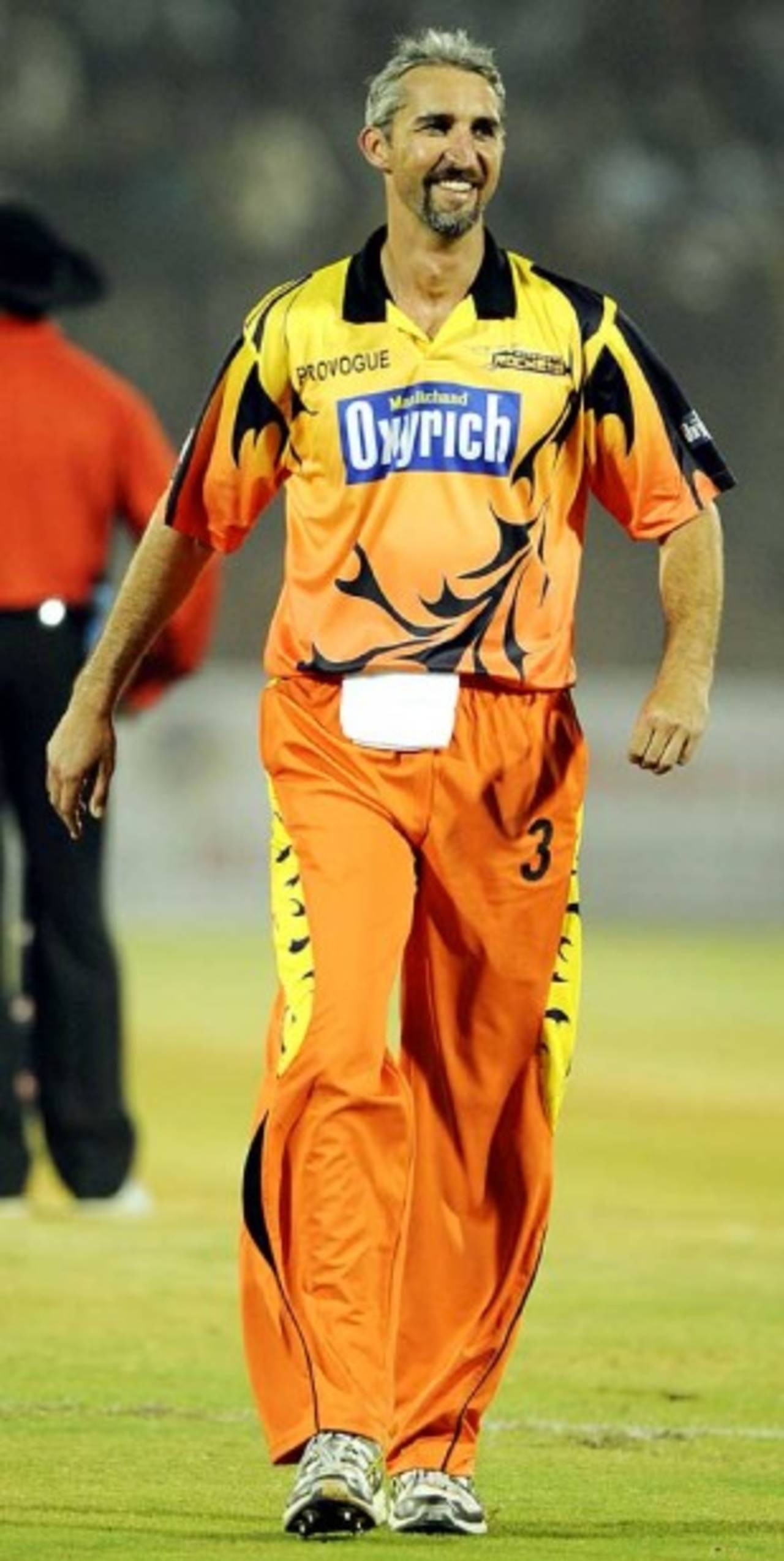So the expected exodus has happened. Seventy-nine Indian players, 11 coaches and all the respected names have headed for the exit door, but for a handful who have decided to stay put aboard the sinking ship. These ten players are the most representative of the ICL story: uncertainty that comes with the economic recession, torn between the league they enjoyed playing in and official cricket, apprehensive that the 'rebel' tag will live forever, unsure how the politically-run BCCI would treat them, the discomfort of being left behind alone, and underneath that, a sense of loyalty towards the league that brought them out of nowhere and put them on television.
Chetan Sharma, a left-hand batsman, played 23 first-class matches for Haryana between 2001-02 and 2005-06. At the age of 27 this would have been a good opportunity for him to come back into the official fold. Uncertainty looms large over when his ICL team, Chandigarh Lions, will play next. And who's left to play anyway? But he didn't want to be ungrateful to the ICL. "They helped me when I needed it the most," Chetan said. "I just didn't feel it was right to leave now."
The feeling is similar, and much stronger, with
Anshu Jain, a right-hand opener who played 36 first-class matches for Rajasthan and represented Ahmedabad Rockets in the ICL. "The future is uncertain," Jain said. "I have no clue where my career will head now. But when I look back at the past and the last two years with the ICL, the decision becomes easier.
"They gave us a platform to perform, they provided us with world-class training facilities and support staff, we shared dressing rooms with the likes of Jason Gillespie, Damien Martyn and John Emburey. Personally speaking, I am a much fitter and better cricketer than I was when I joined the ICL."
Jain's Ahmedabad Rockets team-mate,
Pallav Vora, wicketkeeper for Gujarat before being usurped by Parthiv Patel, followed a more basic human instinct: to stand up for something, a decision he made a year ago. "I had thought long and hard before moving to ICL last year," Vora said. "But now that people were leaving it, I didn't want to be one of those heading back. I also wanted my decision to stand for something. Anyway, I was always in the reserves for the Gujarat team. I spoke to Jason Gillespie and Damien Martyn, they said they were staying, so that made the decision easier."
But these crucial, career-shaping decisions can't be made in isolation. And that's what troubles the ones left behind. The exodus of 79 out of around 90 is an overwhelming number and it leaves the loyals with little choice here.
"I was shocked at how many of us left," said
Dishant Yagnik, former Rajasthan and now Delhi Giants wicketkeeper. "I was expecting only 25 to 30 would go, but in the last week it picked up."
Who knows which path Yagnik and the others would have chosen if they knew they were in the minority? Who knows what they would have opted for in the current scenario had the BCCI extended the amnesty deadline?
If this leaves their future uncertain, there wasn't much surety prevailing when they chose to stay back. Some of them will give you the example of the Cricket Association of Bengal (CAB) and how they met with Deep Dasgupta and Rohan Gavaskar and reassured them that along with the other ICL players from Bengal they would be treated just like other players if they did come back. Such proactive measures cannot be consistent with all state associations of a highly-politicised BCCI. "The rebel tag doesn't go away easily," they will tell you.
The ICL on its part, these players claim, has been transparent. "They told us they were trying to arrange the next tournament, but if we wanted to leave we could," said Yagnik. "They didn't want to stall our career growth, and at the same time they said they would honour our contract if we didn't apply for amnesty."
But now with the severely depleted squads, will it? What if it folds operations? When these players made the decision to stay on, they essentially didn't want to be caught between two stools. Their ICL mates, by moving out in such large numbers, might just have done that to them.
